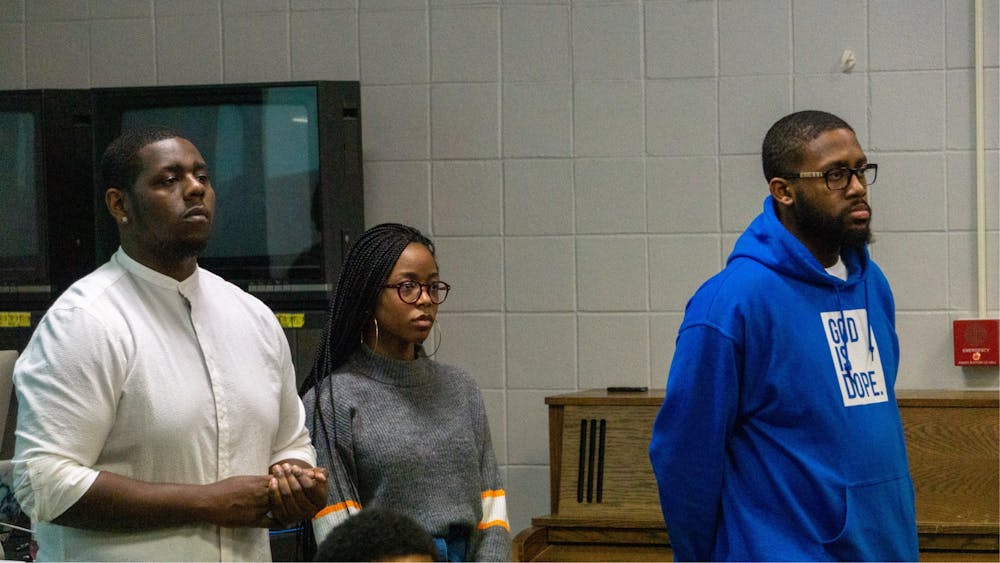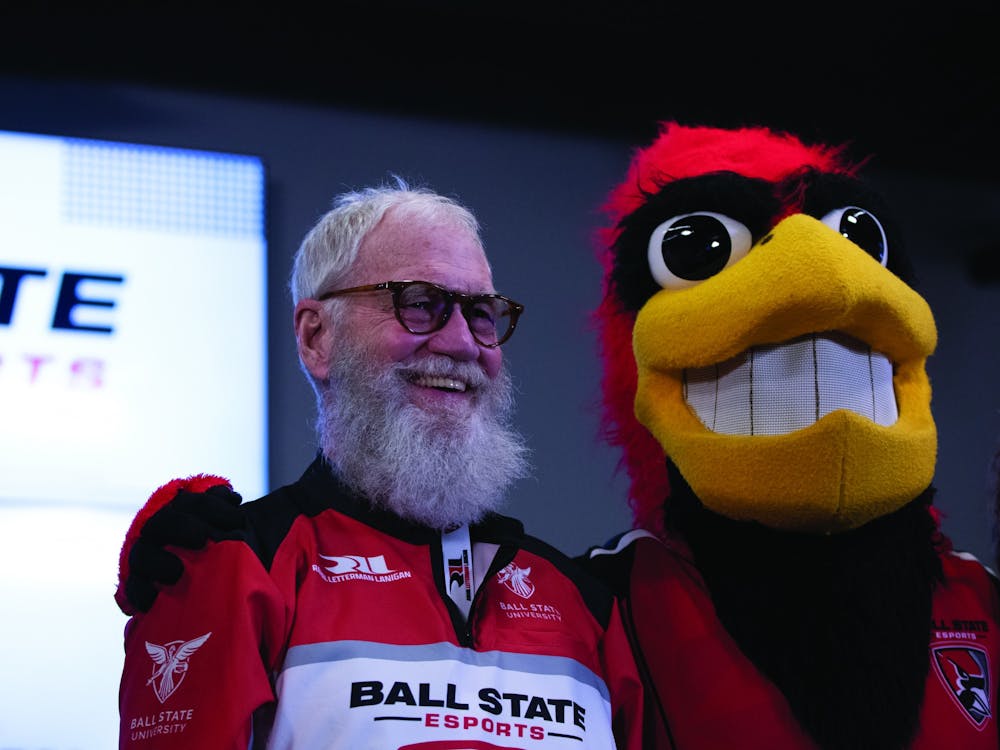In the wake of the incident at Ball State between marketing professor Shaheen Borna and Sultan “Mufasa” Benson Jan. 21, that ended with police being called to the classroom last week, two student organizations sought the feedback of the community.
RELATED: Ball State student, university discuss incident caught on video
The Black Student Association (BSA) and Student Government Association (SGA) held a joint forum with Ball State students Wednesday to assess the campus’ climate on the issue.
RELATED: Muncie, Ball State community leaders speak at campus walkout
“I have high hopes that [Ball State] will listen to what we had to say,” Benson said. “The only thing that does scare me is I know Ball State does care about their image, and we do have a way of protecting the brand.”
The forum, attended by more than 100 students and faculty and livestreamed on SGA’s Facebook page, featured a brief introduction to the issue, followed by a question-and-answer section, concluding with several testimonies from students who have experienced similar issues with professors.
Students were encouraged to voice their opinions about Benson’s incident with Borna, following along with prepared questions on how the university administration could have handled the situation.
One question asked at the forum was how the demographics of Ball State’s faculty made the audience feel. Many black students and non-black students felt the faculty did not reflect them, making it difficult to relate to them.
According to Ball State’s 2018-19 Common Data Set, 119 out of the university’s 1,299 total instructional faculty in fall 2018 were members of minority groups.
One of the objectives of Ball State’s recently finalized Inclusive Excellence Plan is to create a more diverse staff and faculty by increasing recruitment strategies that “attract underrepresented and diverse groups when hiring new faculty and staff.”
Representation was another issue the audience wished to see addressed by the administration. Some students said though students belonging to their races are seen in Ball State’s promotional material, the representation is only for attracting more minorities.
According to Ball State's 2019 Enrollment Synopsis, around 20 percent of the university's 22,541 students were underrepresented minority students.
The Inclusive Excellence Plan also lists achieving a "more diverse and culturally representative undergraduate and graduate student body" as one of its goals.
Lastly, several students shared their stories of professors who had discriminated against them in incidents similar to the one that brought the forum together.
Many such incidents involved the use of racial slurs or stereotypes by Ball State professors against students like senior telecommunications major Amber King.
“Half the class was late every single day,” King said. “So, after class, [the professor] called me out, and he said, ‘You know, you really shouldn't match the stereotype.’”
SGA President Aiden Medellin said he and his organization will work with President Geoffrey Mearns and BSA in the future to ensure the students are heard.
“We’re going to act as liaisons in that way, and that was obviously a large reason why this form occurred because we want to know what demands [the students] have for the administration and how I can work with them in order to fulfill those [demands],” Medellin said.
Contact John Lynch with comments at jplynch@bsu.edu or on Twitter @WritesLynch.





